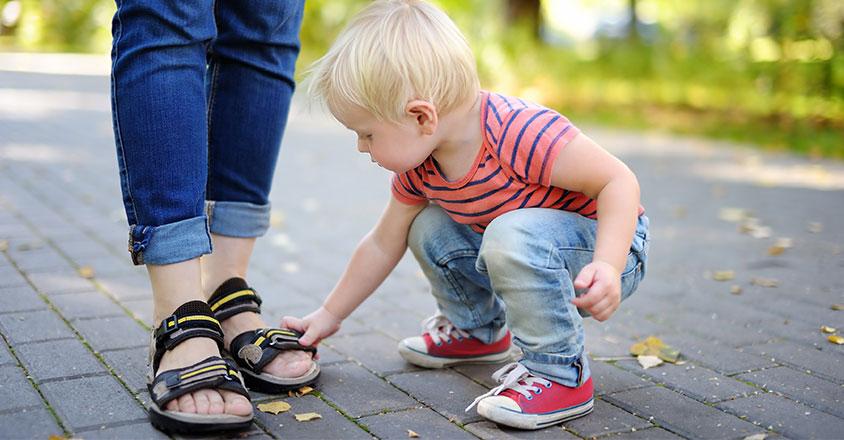

Why your shoe size changes after having a baby
If you’ve given birth, science is now confirming what you’ve probably suspected: Your feet grew.
Pregnancy may permanently change the size and shape of a woman’s feet, suggests a recent study published in the American Journal of Physical Medicine and Rehabilitation. The study followed 49 women from the start of their pregnancy to five months after delivery. Researchers discovered that 60 to 70% of the women had longer and wider feet than when their pregnancies began. First pregnancies may account for most of these changes, the study suggests.
The weight gained during pregnancy and looseness of ligaments cause the arch of the foot to flatten out. Pregnancy hormones loosen the ligaments around your pelvis to prepare your body to give birth. They also relax the ligaments in your feet, causing the bones to spread and widen, creating a need to wear a half or full-size bigger shoe. This can happen as early as the second trimester, and your feet can continue to increase in size until late in the pregnancy. Once your baby arrives, you may be able to go back to your regular shoe size but in some case you may have to go up a size.
“Whatever you do, don't try to squeeze into your old shoes,” said Hung Le, D.P.M., podiatrist with Genesis Foot & Ankle. “Wearing tight-fitting shoes can aggravate bunions and cause a host of other painful foot problems, from ingrown toenails to corns and calluses.”
Be sure to call your OB/GYN if you notice a sudden increase in swelling in your feet or ankles as it can be a potential sign of preeclampsia or a blood pressure issue.
Your foot isn't really growing, but the ligaments aren't as tight as they were before pregnancy. So, this is a great time to treat yourself to new shoes.
Genesis HealthCare System’s Health and Wellness content conveniently provides accurate and helpful information. Your health history and current health may impact suggestions provided through our Health and Wellness content. Although we hope this information is helpful, it is not a substitute for your doctor's medical advice. Before making any significant changes, please consult your doctor.



